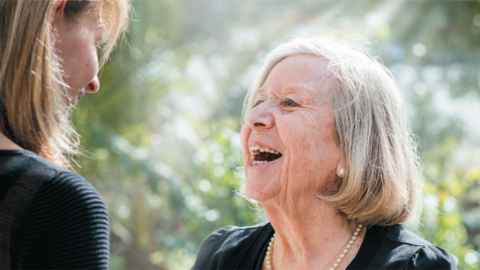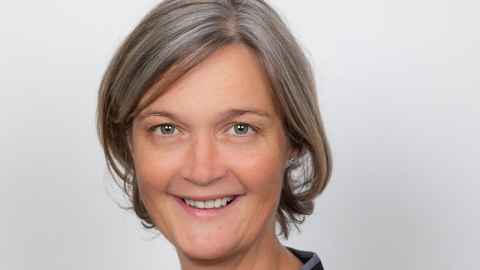What it’s really like to grow old – challenged, not threatened
4 June 2019
Enough talk about decline, disability, frailty and disease in advanced age – a new University of Auckland-led study suggests 85-plus New Zealanders view managing their own health as a matter of challenges and adaptation.

With increasing numbers living into advanced age, researchers say health workers and policy makers need to take their lead from older people. Says study-lead Associate Professor Janine Wiles: “The trouble is we focus what these seniors can’t do, when it would be more helpful to take a holistic approach that recognises and extends upon older people’s resourcefulness and strengths.”
Twenty women and men aged 85-plus were drawn from a wider pool of participants in the landmark umbrella LiLACS NZ study, which is uncovering what leads to successful ageing. The new sub-study, published in the scientific journal Social Science & Medicine, looked at how people experience health and wellbeing in advanced age, and included people living in urban and remote rural areas, with differing degrees of diagnosed health issues.
“We were surprised that so many said they had good health, even when we knew from LiLACS data, GP and hospital records, that most had several diagnosed illnesses,” says Dr Wiles, from the School of Population Health in the University’s Faculty of Medical and Health Sciences.
“They did tell us about their illnesses but they were much more interested in talking about the good things going on in their lives - their families, grandchildren, hobbies, contributions to their communities; and how they overcome, or adapt to, challenges or losses.”
We need to start where they are. How can we build on their strengths to
enable them to keep doing the things they want to do?
It wasn’t all ‘unicorns and rainbows’, of course. “They had quite a lot to contend with, including illness, giving up driving, and often loss of a spouse or friends. The point is that while they acknowledged these challenges, they also focused on what they could do and how they could manage. Though, there also may have been an element of playing down their suffering to meet society’s expectations to not be complainers.”
While the participants would usually be labelled as ‘care recipients’, they talked as much about their own caring work. “They did talk about a range of support they got from family, friends, neighbours, health professionals,” says Dr Wiles, “but they also talked about how they actively contribute and reciprocate, and how these networks of exchange operate over a lifetime; for example, how they had supported others in the past.”

Co-researcher Professor Ngaire Kerse, the Head of the School of Population Health and inaugural Joyce Cook Chair in Ageing Well, says health professionals need to move beyond understanding older people as 'care recipients'.
“We need to acknowledge the very active role they play in shaping their own health, wellbeing and lives, as well as the lives of their families/whānau and wider communities.”
Professor Kerse, also a practicing GP, says the study challenges stereotypes of people in advanced age with illnesses as frail, passive or dependent.
“We need to reframe how we think about, and attend to, the often very serious health challenges people in advanced age experience. We need to start where they are. How can we build on their strengths to enable them to keep doing the things they want to do?”
Instead of a narrow focus on individual abilities and tasks, health workers and policy makers could take a more holistic approach that recognises the range of ways people manage their symptoms and experience wellbeing, helps keep them feeling connected, engaged and supported by their community, and builds on their strengths and resources to enable resilience, she says.
“We need to start having the same conversations around resilience in advanced age as we do for children and young adults.”
Follow-up work will tease out the significance of gardening, something that came up again and again, and look at medication management and relationships with GPs.
The study’s other authors were Professor Merryn Gott, Research Fellows Dr Philippa Miskelly and Dr Oneroa Stewart from the School of Population Health, and Director of the Centre for Health in Tauranga Dr Anna Rolleston.
The umbrella study, Living in Advanced Age: a Cohort Study in New Zealand (LiLACS NZ), involved 421 Māori participants aged 80 to 90, and 516 non-Māori participants aged 85, from within the Bay of Plenty and Lakes District Health Board areas. It was funded by the Health Research Council and the Ministry of Health.
Read the article:
Social Science & Medicine: Challenged but not threatened: Managing health in advanced age
Media contact
Nicola Shepheard | Media Adviser
Tel: +64 9 923 1515
Mob: +64 27 537 1919
Email: n.shepheard@auckland.ac.nz